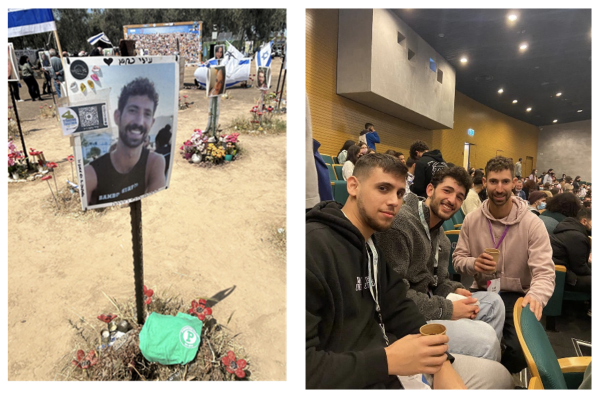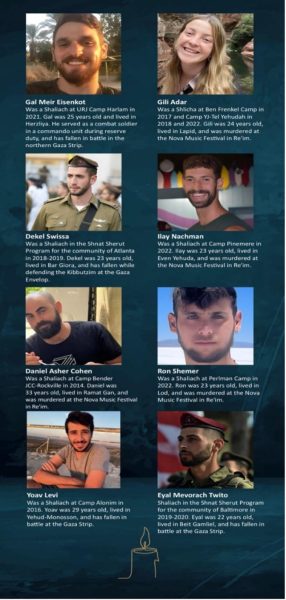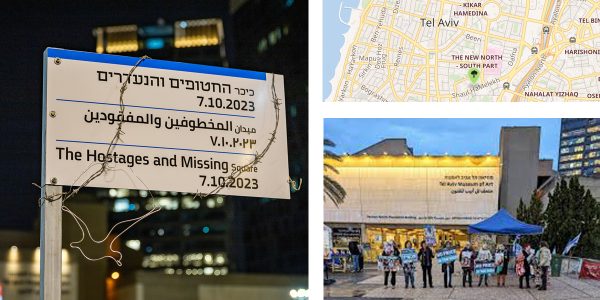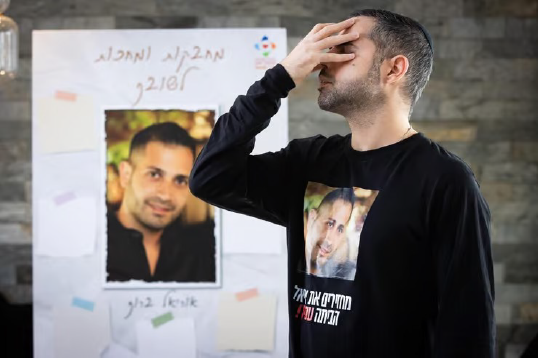By Leah Garber
God who is in heaven, Protector and Redeemer of Israel, bless the State of Israel, the dawn of our deliverance. Shield it beneath the wings of Your love; spread over it Your canopy of peace; send Your light and Your truth to its leaders, officers, and counselors, and direct them with Your good counsel.”
– Prayer for the State of Israel
On October 7, we were robbed of our sense of personal and national security, we felt exposed in front of a cruel enemy. Since then, with consistency and determination, the Israeli army, with its amazing, committed, brave, and moral soldiers, has restored the public’s trust in it and its ability to protect us.
Last night, together with Israel’s allies led by the United States, the Israeli Air Force and Israel’s advanced, one-of-a-kind defense systems achieved a colossal win against a significant threat, unlike anything we have ever experienced. The night began with unprecedented apprehension and ended with immense pride—and with a deep smile, the first in a long time. Our full confidence in the Israeli army is back, and it’s wonderful to welcome it once again.
For 16 minutes, between 1:42 and 1:58 a.m. local time, Iran launched a historic and unprecedented attack against Israel. The Iranian attack, the largest of its kind ever, included hundreds of ballistic missile drones and cruise missiles. In a rare cooperative coalition led by the U.S. that included Britain, Jordan, and France, 99% of the missiles were intercepted—nearly all outside the borders of Israel. Most of the interceptions were achieved by Israel, thanks to the Arrow air-defense system and the David’s Sling anti-missile system. In a rare sight, countless fighter jets from the various air forces carved bright, glowing lights into the night sky, determined to repel the Iranian weapons and protect the people of Israel.
We all slept very little last night, if at all. In addition to the nearly 700 sirens that wailed across the country from north to south, the piercing sounds of the interception systems, together with the noise of the aircraft engines were deafening—and calming at the same time. An aerial umbrella protected us. We are saddened that a 7-year-old Bedouin Muslim girl was seriously wounded by shrapnel, and doctors are fighting now to save her life—the sole casualty of the entire event.
Shabbat ended and the evening began when an IDF spokesman announced a high alert and the closure of the country’s entire educational system for 48 hours. Not long after, the IDF reported that the Iranian attack had begun. The news that hundreds of missiles were on their way to Israel and expected to arrive in the next few hours caused unprecedented tension.
The night of April 14 is one we will long remember. It began with a deep sense of anxiety and fear of the unknown. Concern was everywhere—thick, and palpable. All WhatsApp groups were busy, including our own Garber family group. Should our kids come stay with us? Is it safer where we live, not too far from Tel Aviv, or is staying where they live in northern Israel safer? Once again, Israeli resilience was required to meet the challenge, but this time, it was a challenge unprecedented in its scope and in the degree of danger it presented.
Thirteen JCC professionals from various JCCs in North America are in Israel this week as part of the 12th cohort of the Merrin Teen Professional Fellowship. They experienced the threat and fear together with all of us. When the siren went off, they were in a well-known Jerusalem hotel and, together with the other guests, rushed to the hotel’s shelter in the basement, the sounds of the interception clearly audible.
At the end of the required 10 minutes in the protected space, they returned to their rooms to face a much more difficult challenge: reassuring their worried families from afar. In a group conversation we had this morning, many admitted that this experience, the first of its kind they had had, will be one they will remember forever.
Many images were burned into our minds last night, but perhaps the most memorable one of all is the interceptions over the Temple Mount, a holy site for Muslims. Think about it: Israeli Air Force planes protected the Muslim holy site against danger coming from Iran, a Muslim country.
By the end of the evening, we all felt tremendous relief and immense pride in Israel’s defense systems and the operational capabilities of the Air Force, which over the years has developed unique capabilities to be ready for a night precisely like the one we had just experienced.
Strengthen the defenders of our Holy Land; grant them, our God, salvation and crown them with victory. Establish peace in the land, and everlasting joy for its inhabitants. Remember our brethren, the whole house of Israel, in all the lands of their dispersion. Speedily bring them to Zion, Your city, to Jerusalem, Your dwelling-place.”
Once again, we faced a significant threat, and we emerged strengthened, proving our operational capabilities, the resilience of Israeli society, and the fact that the free world stands by us.
Together, united, we will overcome.
Leah Garber is a senior vice president of JCC Association of North America and director of its Center for Israel Engagement in Jerusalem.






